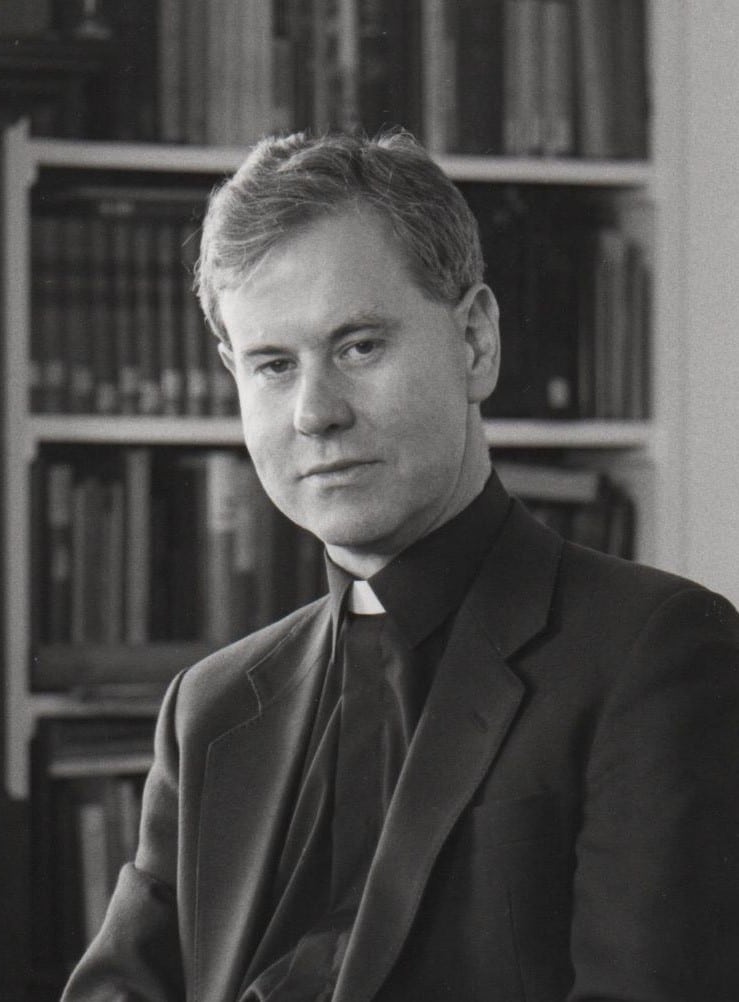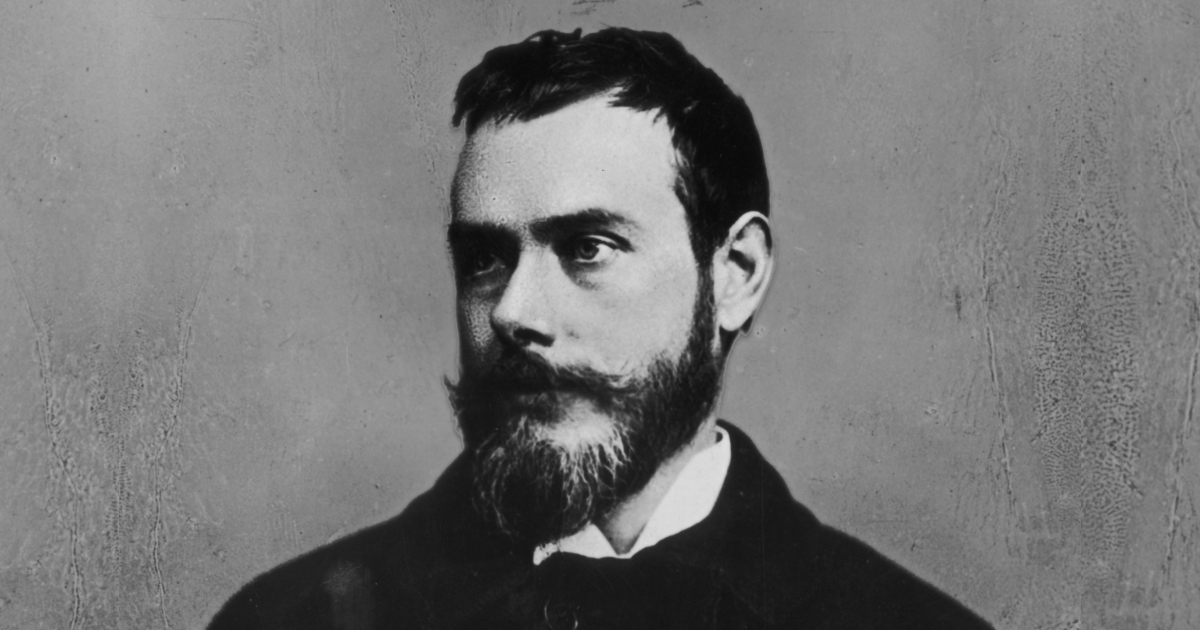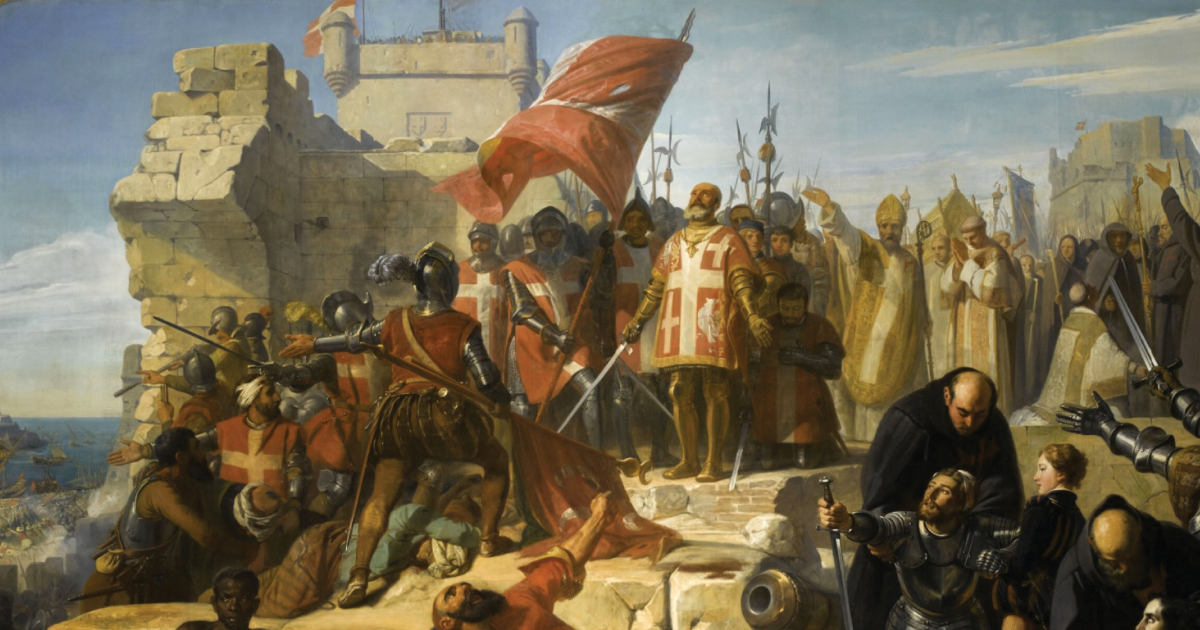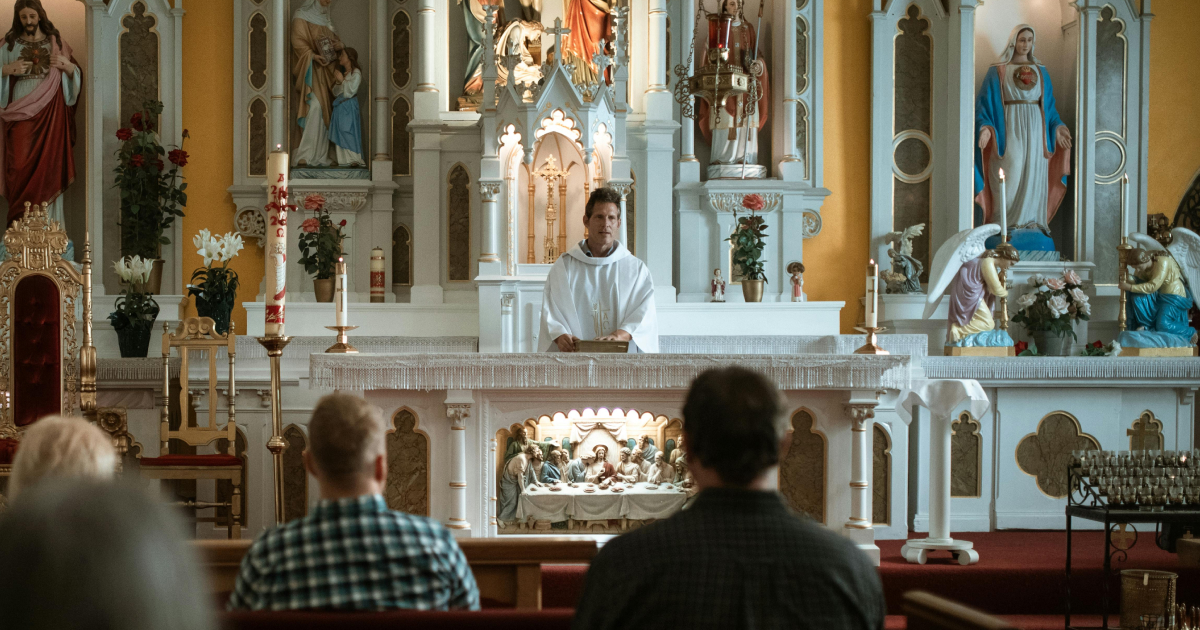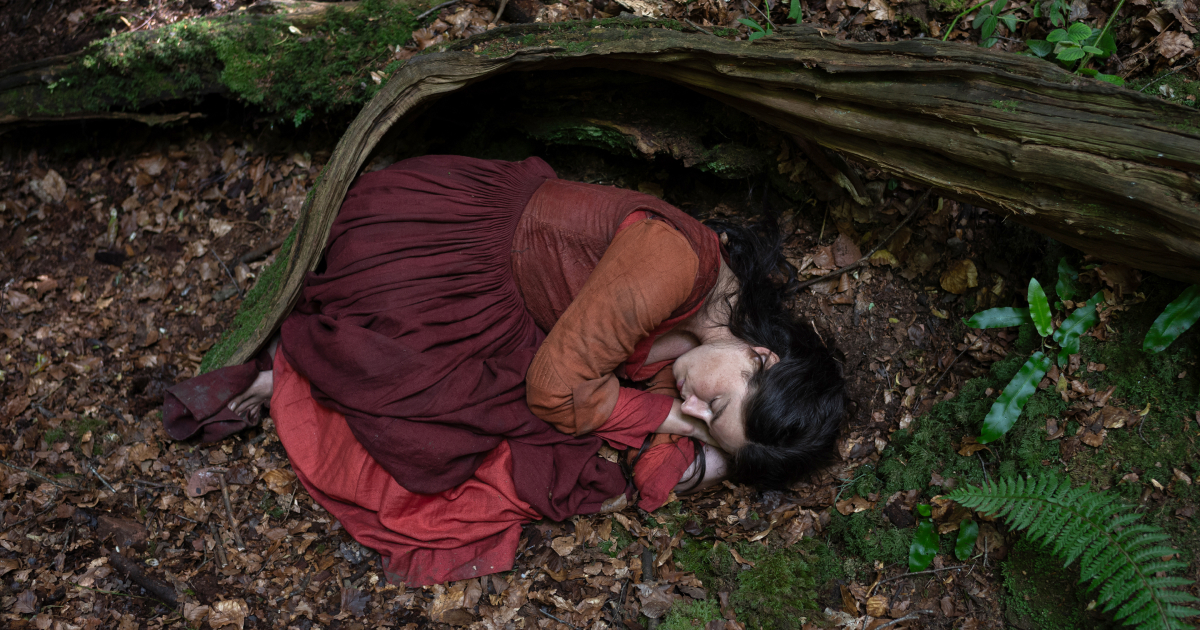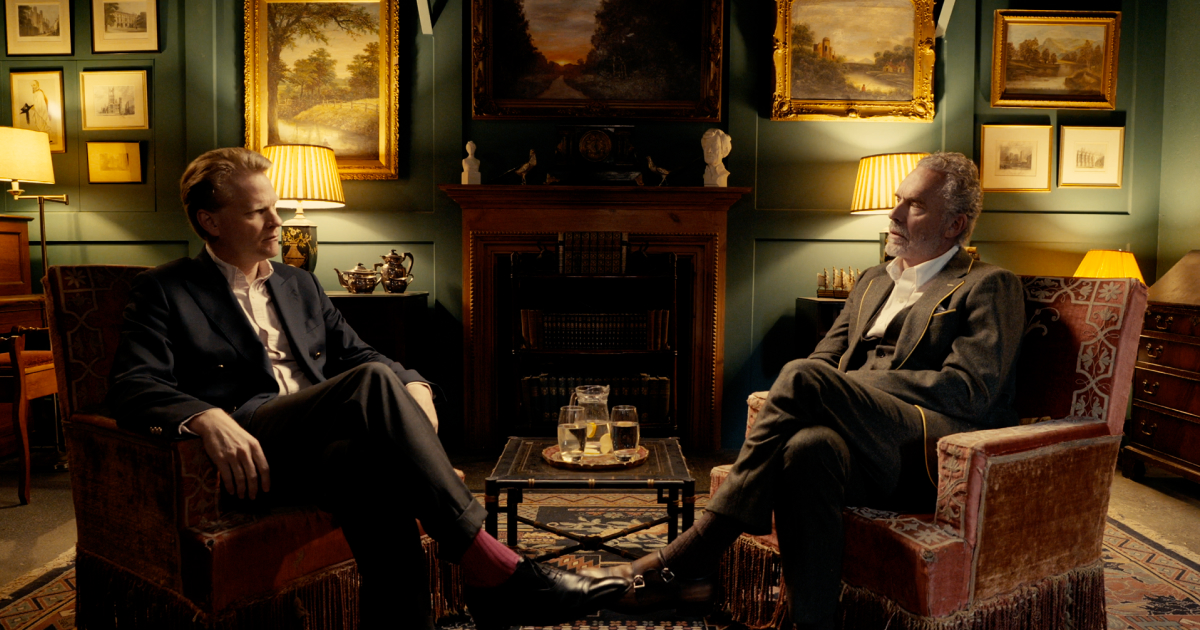Fr Ian Turnbull Ker, the leading scholar on the life and work of St John Henry Newman, died on 5 November. He was a brilliant writer and biographer, as well as a parish priest, and published over twenty books on Newman and his theology. His John Henry Newman has long been regarded as the definitive account of the most recent saint of the Anglosphere; his scholarly biography of GK Chesterton is also widely admired. Like both men, Ker was a convert from Anglicanism.
Ker was born in Naini Tal, India on 30 August 1942; he was the son of Charles Murray Ker of the Indian Civil Service and his wife Joan May Knox, a relative of Ronald Knox. In 1947 he and his parents and his two sisters left India after independence was declared. Moving to England, they settled in Wimbledon. Ker remembered, as a boy, entering the enormous Sacred Heart Church in Edge Hill, Wimbledon, and being impressed by the Mass being celebrated there. The then-normative Tridentine Rite was very unlike the middle-of-the-road Church of England services his family attended.
On the advice of an uncle, a Classics don at Trinity College, Cambridge, Ker attended Shrewsbury School. From there he went to Balliol College, Oxford, to read Classics under three of the leading scholars of the time: Gordon Williams in literature, Russell Meiggs in ancient history, and RM Hare in moral philosophy. After Balliol he won a scholarship to study English at Corpus Christi College, a few streets away, where he was taught by FW Bateson, the founder of Essays in Criticism and a disciple of FR Leavis.
Defying his father’s dogmatic dismissal of Christianity, Ker had read CS Lewis’s Mere Christianity (1952) in his teens, and while at Oxford decided to become a Catholic. The reaction of his parents was mixed: his father was indifferent, but his mother was upset – although she eventually became a Catholic herself. Four decades later Ker wrote a work of apologetics of his own, Mere Catholicism (2007), which argued that mere Christianity could not be other than mere Catholicism.
From Oxford, Ker moved to Trinity College, Cambridge to study for a doctorate on George Eliot; although the university did not accept his PhD, it later awarded him a doctorate for his published work. He then went to the University of York, where he taught Latin as well as English Literature, but after a few years abandoned his academic career to train for the priesthood. He stayed briefly at the Birmingham Oratory, where he got know the distinguished Newman scholar Fr Charles Dessain, and then completed his training at the Venerable English College in Rome.
Once ordained, Ker took up an endowed chair in Theology and Philosophy at the University of St Thomas in St Paul, Minnesota, later returning to England to care for his parents. After a brief spell as Catholic Chaplain at Oxford he moved to a similar role at Southampton University, before becoming parish priest of the Church of Ss Thomas More & John Fisher at Burford in the Cotswolds. During these years he was part of the Theology Faculty of Oxford University; latterly he was a research fellow at Blackfriars Hall.
Over several decades Ker managed to combine his priestly ministry with an extraordinary scholarly output. Besides critical editions of three of Newman’s most influential works – the Apologia pro Vita Sua, the Grammar of Assent and the Idea of a University – he co-edited four volumes of Newman’s Letter and Diaries and worked in all the fields covered by Newman’s own “imperial intellect”. Like his subject, however, he was able to see souls behind his writing. This ensured that his own prodigious output was grounded in pastoral work. It extended beyond parochial (and indeed diocesan) boundaries and included helping some of the new movements, whom he thought would play a vital role in the Church – especially Youth 2000 and the Neocatechumenal Way.
Not over-concerned with the externals and rubrics of the liturgy, Ker wrote a moving and insightful description of the pre-Vatican II priesthood in his chapter on the priest as craftsman in The Catholic Revival in English Literature (2003). He lamented the decline of popular attendance at Confession, often quoting St John Vianney, and contrasted the humility of Irish working-class penitents he had encountered early in his ministry with the comfortable middle classes.
Ker’s tireless energy saw him accepting invitations to speak about Newman all over the world, as well as organising – usually single-handedly – symposia and international conferences. Not a few of those who met or listened to him were delighted by his bonhomie and wit, and found his company highly stimulating. His vivacity was much in evidence at the dinner to mark his 80th birthday in London at the end of August; at the gathering he was presented with a festschrift, Lead, Kindly Light: Essays in Honour of Ian Ker, which included pieces by three well-known cardinals, former students, and other distinguished friends and admirers.
Towards the end of his life, after over two decades at Burford, Ker retired to Cheltenham. There his devoted housekeeper, Julia Kadziela, ensured that he was able to live an independent priestly life to the end. His death has deprived the Catholic Church in England of one of its finest minds, and certainly the greatest interpreter of another. May St John Henry Newman now intercede for him before the Throne of Grace.
Now let the golden prison ope its gates,
Making sweet music, as each fold revolves
Upon its ready hinge.
The Revd Dr Ian Ker, 30 August 1942 - 5 November 2022
(Photograph courtesy of Gracewing publishing)
Fr Ian Turnbull Ker, the leading scholar on the life and work of St John Henry Newman, died on 5 November. He was a brilliant writer and biographer, as well as a parish priest, and published over twenty books on Newman and his theology. His <em>John Henry Newman</em> has long been regarded as the definitive account of the most recent saint of the Anglosphere; his scholarly biography of GK Chesterton is also widely admired. Like both men, Ker was a convert from Anglicanism.
Ker was born in Naini Tal, India on 30 August 1942; he was the son of Charles Murray Ker of the Indian Civil Service and his wife Joan May Knox, a relative of Ronald Knox. In 1947 he and his parents and his two sisters left India after independence was declared. Moving to England, they settled in Wimbledon. Ker remembered, as a boy, entering the enormous Sacred Heart Church in Edge Hill, Wimbledon, and being impressed by the Mass being celebrated there. The then-normative Tridentine Rite was very unlike the middle-of-the-road Church of England services his family attended.
On the advice of an uncle, a Classics don at Trinity College, Cambridge, Ker attended Shrewsbury School. From there he went to Balliol College, Oxford, to read Classics under three of the leading scholars of the time: Gordon Williams in literature, Russell Meiggs in ancient history, and RM Hare in moral philosophy. After Balliol he won a scholarship to study English at Corpus Christi College, a few streets away, where he was taught by FW Bateson, the founder of <em>Essays in Criticism</em> and a disciple of FR Leavis.
Defying his father’s dogmatic dismissal of Christianity, Ker had read CS Lewis’s <em>Mere Christianity</em> (1952) in his teens, and while at Oxford decided to become a Catholic. The reaction of his parents was mixed: his father was indifferent, but his mother was upset – although she eventually became a Catholic herself. Four decades later Ker wrote a work of apologetics of his own, <em>Mere Catholicism </em>(2007), which argued that mere Christianity could not be other than mere Catholicism.
From Oxford, Ker moved to Trinity College, Cambridge to study for a doctorate on George Eliot; although the university did not accept his PhD, it later awarded him a doctorate for his published work. He then went to the University of York, where he taught Latin as well as English Literature, but after a few years abandoned his academic career to train for the priesthood. He stayed briefly at the Birmingham Oratory, where he got know the distinguished Newman scholar Fr Charles Dessain, and then completed his training at the Venerable English College in Rome.
Once ordained, Ker took up an endowed chair in Theology and Philosophy at the University of St Thomas in St Paul, Minnesota, later returning to England to care for his parents. After a brief spell as Catholic Chaplain at Oxford he moved to a similar role at Southampton University, before becoming parish priest of the Church of Ss Thomas More & John Fisher at Burford in the Cotswolds. During these years he was part of the Theology Faculty of Oxford University; latterly he was a research fellow at Blackfriars Hall.
Over several decades Ker managed to combine his priestly ministry with an extraordinary scholarly output. Besides critical editions of three of Newman’s most influential works – the <em>Apologia pro Vita Sua</em>, the <em>Grammar of Assent</em> and the <em>Idea of a University</em> – he co-edited four volumes of Newman’s <em>Letter and Diaries</em> and worked in all the fields covered by Newman’s own “imperial intellect”. Like his subject, however, he was able to see souls behind his writing. This ensured that his own prodigious output was grounded in pastoral work. It extended beyond parochial (and indeed diocesan) boundaries and included helping some of the new movements, whom he thought would play a vital role in the Church – especially Youth 2000 and the Neocatechumenal Way.
Not over-concerned with the externals and rubrics of the liturgy, Ker wrote a moving and insightful description of the pre-Vatican II priesthood in his chapter on the priest as craftsman in <em>The Catholic Revival in English Literature</em> (2003). He lamented the decline of popular attendance at Confession, often quoting St John Vianney, and contrasted the humility of Irish working-class penitents he had encountered early in his ministry with the comfortable middle classes.
Ker’s tireless energy saw him accepting invitations to speak about Newman all over the world, as well as organising – usually single-handedly – symposia and international conferences. Not a few of those who met or listened to him were delighted by his bonhomie and wit, and found his company highly stimulating. His vivacity was much in evidence at the dinner to mark his 80th birthday in London at the end of August; at the gathering he was presented with a festschrift, <em>Lead, Kindly Light: Essays in Honour of Ian Ker</em>, which included pieces by three well-known cardinals, former students, and other distinguished friends and admirers.
Towards the end of his life, after over two decades at Burford, Ker retired to Cheltenham. There his devoted housekeeper, Julia Kadziela, ensured that he was able to live an independent priestly life to the end. His death has deprived the Catholic Church in England of one of its finest minds, and certainly the greatest interpreter of another. May St John Henry Newman now intercede for him before the Throne of Grace.
(Photograph courtesy of <em>Gracewing</em> publishing)






